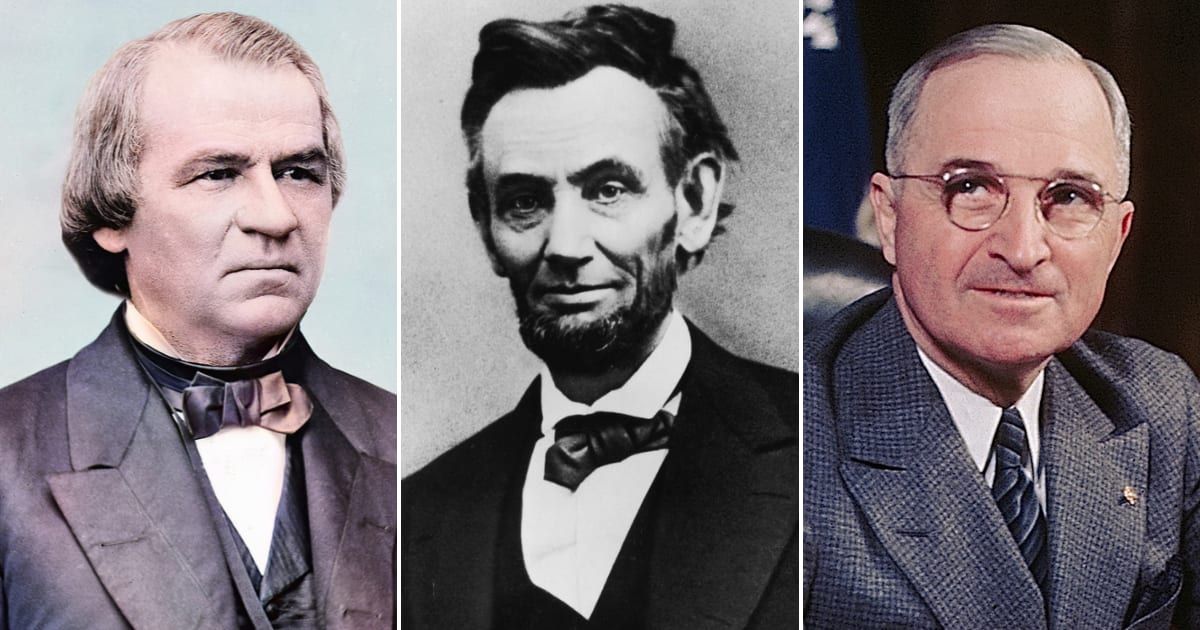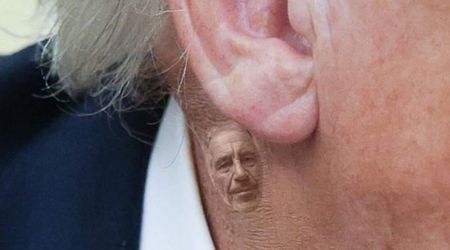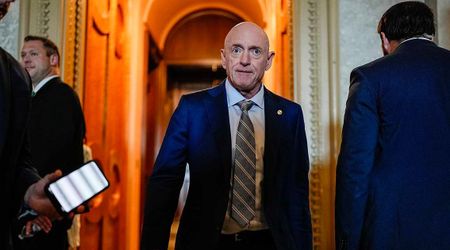Remembering 9 poorest US presidents who left behind estates worth less than $1M

9 poorest presidents in history of the United States

While many US presidents have been wealthy, the Oval Office hasn't always been occupied by those with hefty bank accounts. Some presidents hailed from humble origins, including Abraham Lincoln, Andrew Johnson, and James Garfield, who were all born in log cabins. Despite the common perception, some presidents even faced financial struggles. Here's a detailed look at some of the poorest presidents in US history, each leaving behind estates valued at less than $1 million.
1. James Buchanan (1857-1861)

James Buchanan, a native of Pennsylvania, hailed from a modest background and dedicated much of his life to public service. His career spanned various roles, including serving as a state representative, a member of the US House of Representatives, a senator, a foreign minister, and a secretary of state. Eventually, he ascended to the highest office in the nation, becoming the 15th president of the United States.
2. Abraham Lincoln (1861-1865)

Similar to Buchanan, Abraham Lincoln's origins were humble. He was born in a log cabin and raised in modest circumstances without wealth. Before his historic presidency as the 16th leader of the United States, Lincoln pursued a career in law, practicing as a lawyer. He is also said to have briefly managed a general store in New Salem, Illinois, before embarking on his political journey.
3. Andrew Johnson (1865-1869)

Andrew Johnson's upbringing was primarily under the care of his mother, without the presence of his father for most of his life. Before embarking on a notable 25-year tenure in public service, Johnson pursued a trade as a tailor. His political journey included holding positions as the governor of Tennessee and serving as a US senator. Eventually, he assumed the presidency, becoming the 17th leader of the United States.
4. Ulysses S Grant (1869-1877)

Ulysses S Grant, originally from Ohio, began his career as a clerk in a leather shop. His path then led him to distinguished service as a soldier, where he gained recognition as a revered military officer. Eventually, he ascended to the highest office in the land, becoming the 18th president of the United States. Following his presidency, Grant faced financial hardship when he lost his savings in a Ponzi scheme orchestrated by his son's business associate.
5. James Garfield (1881-1881)

James Garfield, the 20th president of the United States, tragically fell victim to an assassination in the early stages of his presidency. Before his presidency, he dedicated 18 years to serving in the House of Representatives. Despite his political career, Garfield maintained a modest lifestyle, owning a small residence and property in Mentor, Ohio.
6. Chester Arthur (1881-1885)

Before assuming office as the 21st president of the United States, Chester Arthur gained recognition for his legal prowess and advocacy. Notably, he represented Elizabeth Jennings Graham in a landmark civil rights case in 1854 against the New York City streetcar lines. His successful representation led to the desegregation of the city's streetcars, marking a significant victory for civil rights and equality. Though trained as a lawyer, Arthur primarily served in the public sector. Born to an Irish immigrant, he grew up in Vermont and New York, graduating from Union College before becoming a schoolteacher. He later practiced law in New York City, briefly interrupted by his role as a quartermaster in the Civil War. While never affluent, Arthur had a taste for luxury. Before his presidency, he secured $30,000 from Congress for Louis Comfort Tiffany to furnish the White House to his liking.
7. Woodrow Wilson (1913-1921)

Before his presidency, Woodrow Wilson held positions in academia and government. He once served as the president of Princeton University. Following his tenure in academia, Wilson transitioned to politics and served as the governor of New Jersey. Eventually, he ascended to the highest office in the nation, becoming the 28th president of the United States. While never exactly “poor”, Wilson hailed from humble beginnings and remained within that modest socioeconomic sphere, dedicating a significant portion of his professional life to academia.
8. Calvin Coolidge (1923-1929)

Calvin Coolidge, born into a modest family background, was the son of a storekeeper and community figure. He pursued a career in law and eventually rose to prominence as the governor of Massachusetts. Following his successful tenure in state politics, Coolidge went on to become the 30th president of the United States.
9. Harry S Truman (1945-1953)

Before his term at the Oval Office, president Harry S Truman had a humble start as a haberdasher, selling clothes in Missouri and facing near-bankruptcy. Despite his modest beginnings, he dedicated 18 years to public service in Washington DC, serving in various capacities before assuming the role of the 33rd president of the United States. Notably, Truman became the first recipient of Medicare.










